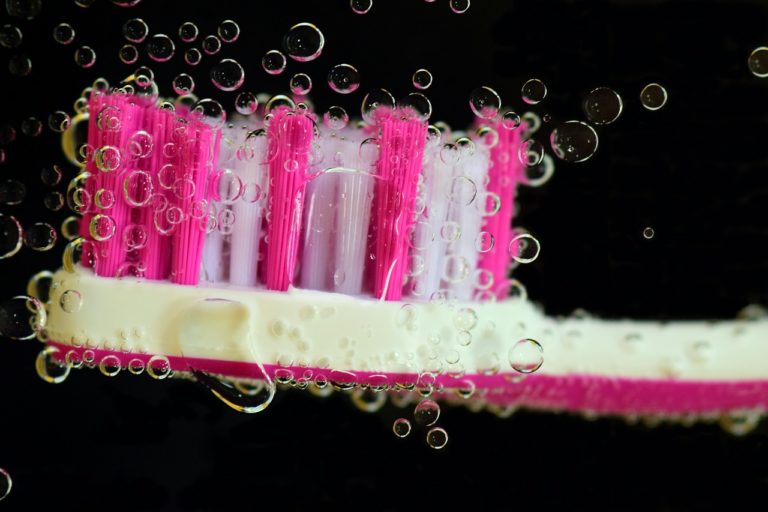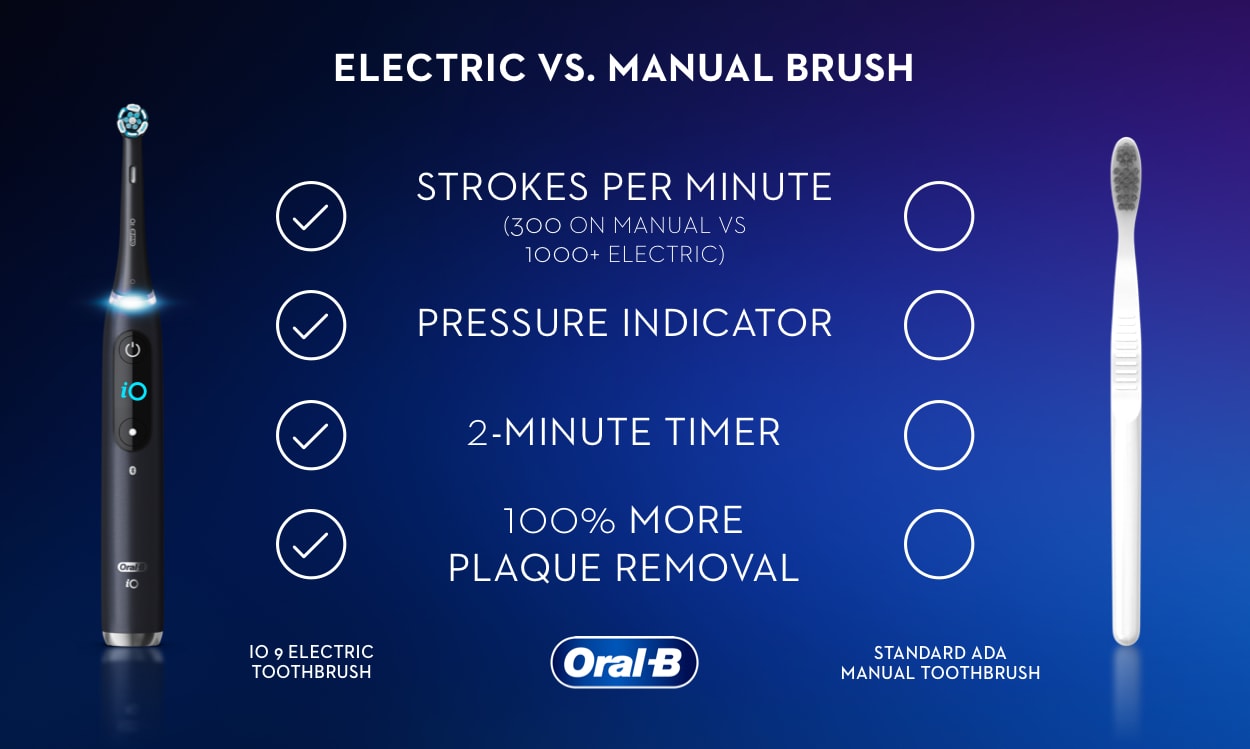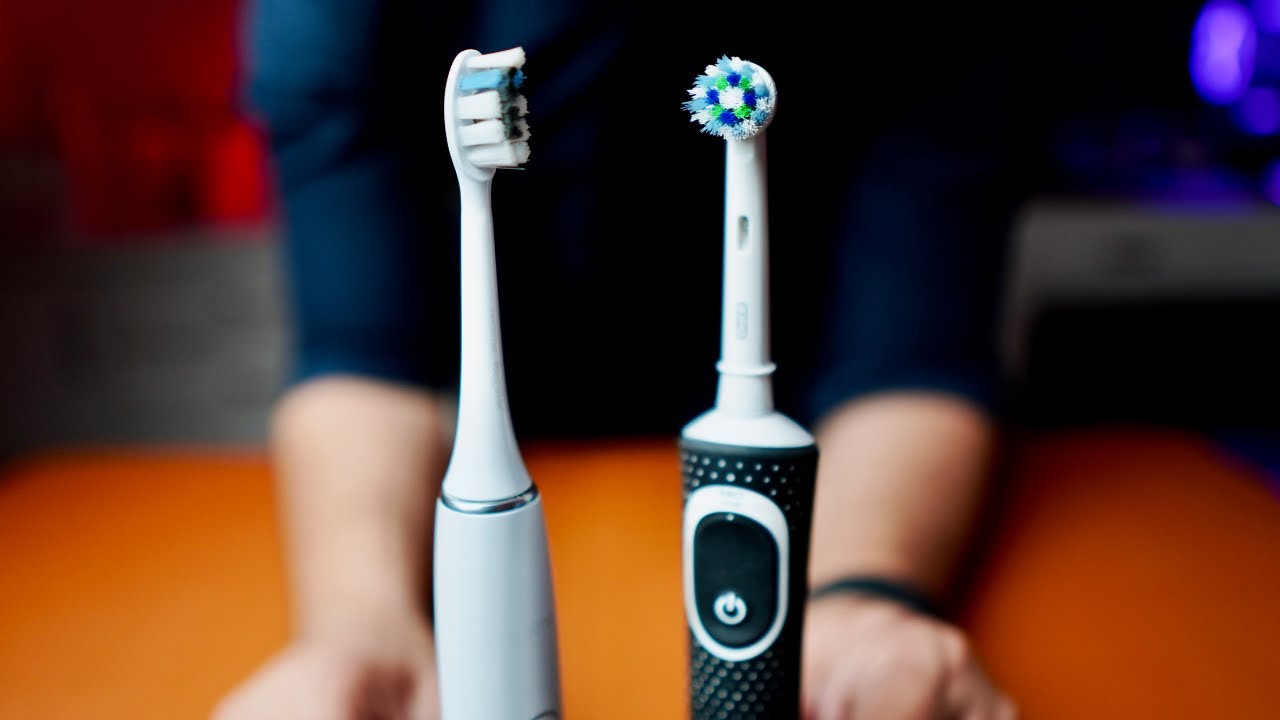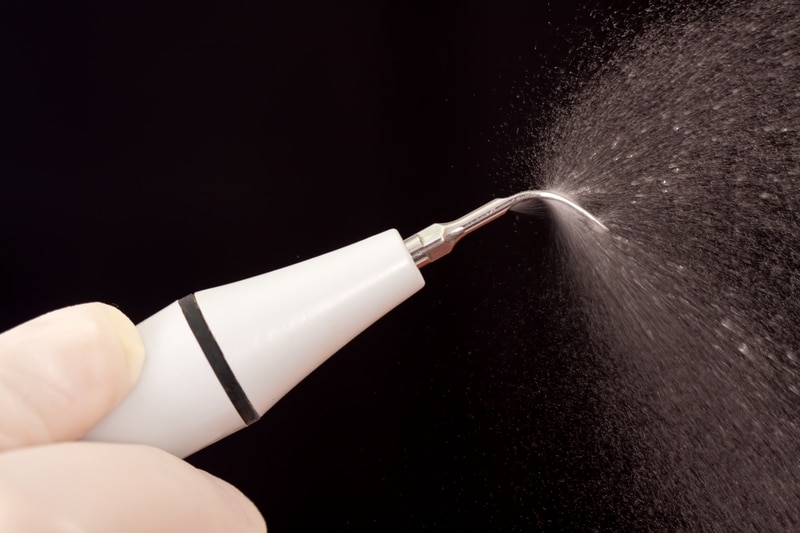The advantages of an electric toothbrush are that they help remove plaque more effectively than manual brushing. Also, they come with a variety of features such as timers to ensure you brush for the recommended two minutes, and pressure sensors which let you know if you’re brushing too hard. The vibrations can also be beneficial in stimulating your gums and helping reduce bleeding or tenderness.
On the other hand, electric toothbrushes can be expensive compared to traditional brushes, so cost may be an issue for some people. Additionally, since the head of an electric brush is larger than a regular one, it may not fit well into tight places in your mouth like between teeth or around braces wires and brackets. Finally, some people find them noisy or bulky to hold and use.
Electric toothbrushes offer a number of advantages over manual brushing, such as improved plaque removal and better cleaning around the gum line. However, there are some downsides to consider when deciding whether or not an electric toothbrush is right for you. The cost of purchasing an electric toothbrush can be higher than a manual brush, in addition to the need for regular replacement heads and batteries.
Additionally, some users may experience discomfort from the vibration produced by an electric toothbrush on sensitive teeth and gums.
Toothbrush Advantages And Disadvantages
The use of a toothbrush has been proven to be one of the most effective methods for cleaning your teeth. Brushing regularly helps remove plaque and bacteria from the surface of your teeth, reducing cavities and gum disease. However, improper brushing technique or overuse of a toothbrush can cause abrasion on the enamel, leading to sensitivity and irritation.
Additionally, if not properly sanitized between uses, the bristles may harbor bacteria that could potentially lead to infection. Therefore it is important to use a toothbrush correctly and clean it thoroughly after each use in order to maximize its benefits while minimizing its potential risks.
Disadvantages of Manual Toothbrush
Manual toothbrushes are a traditional and cost-effective way to brush your teeth, but they do come with some drawbacks. Manual toothbrushes require more effort than electric ones to properly clean the teeth, making it harder for people with limited dexterity or mobility issues to effectively use them. Additionally, manual brushes may not be as effective at removing plaque as an electric one, leading to an increased risk of cavities and gum disease if proper brushing techniques are not used.
Disadvantages of Toothbrush
One of the main disadvantages of using a toothbrush is that it can be difficult to reach all areas of your mouth when brushing, leading to plaque buildup in hard-to-reach places. Additionally, manual toothbrushes are often too abrasive on teeth and gums, potentially causing damage over time. Finally, bacteria can also easily accumulate on bristles if not cleaned properly, which could lead to an infection or disease.
Manual Toothbrush Advantages And Disadvantages
Manual toothbrushes have been around for centuries and can be an effective way to keep your teeth clean. They are inexpensive, easy to find, and come in a variety of sizes and shapes. However, manual toothbrushes do have some disadvantages as well.
Most notably, they require more effort from the user to properly remove plaque than electric toothbrushes do, meaning that if you don’t take the time to brush thoroughly, you may not get all of the benefits associated with regular brushing. Additionally, they may also wear out faster than their electric counterparts due to usage over time.
Electric Toothbrush Advantages
Electric toothbrushes have a number of advantages over manual brushing. Electric toothbrushes are more efficient and effective at removing plaque from teeth than manual brushes, as their movement is more powerful and targeted. They also provide better access to hard-to-reach areas in the mouth, resulting in improved oral hygiene overall.
Additionally, electric toothbrushes come with features such as timers that help ensure users brush their teeth for the recommended two minutes per session.
Which Toothbrush is Better
When it comes to choosing a toothbrush, the most important factors are comfort and effectiveness. Soft bristles are generally considered to be better for your teeth and gums since they provide gentle yet effective cleaning without causing irritation or damage. Additionally, electric toothbrushes can help you brush more thoroughly and evenly than manual brushes due to their oscillating heads that rotate at high speeds.
Therefore, when selecting a toothbrush, consider both soft-bristled manual models as well as electric brushes that offer advanced features such as timers and pressure sensors.
Oral-B Electric Toothbrush Benefits
Oral-B electric toothbrushes are an excellent choice for maintaining good oral health. Their features include a timer that helps you know when to switch quadrants of your mouth during brushing, multiple brush head options to suit different needs and preferences, pressure sensors so you don’t brush too vigorously, and rotating oscillation technology for effective plaque removal. This results in healthier gums and whiter teeth compared to manual brushing alone.
Best Electric Toothbrush
Electric toothbrushes are a great way to improve your oral health. They provide superior cleaning power compared to manual brushing and can help prevent plaque buildup, gum disease, and cavities. Electric toothbrushes are also more convenient than manual brushes since they come with a timer that lets you know when you’ve brushed for the recommended two minutes.
If you’re looking for the best electric toothbrush out there, be sure to check out options from brands like Oral-B and Philips Sonicare that offer advanced features such as rechargeable batteries, pressure sensors, and multiple brush heads.

Credit: kidzaniadental.com
What is the Downside of Using an Electric Toothbrush?
The downside of using an electric toothbrush is that they require batteries and can be expensive.
* Batteries need to be replaced often, which adds to the costs.
* Electric toothbrushes are usually noisier than manual ones.
* They may not be suitable for people with certain dental conditions or limitations in their motor skills.
Overall, electric toothbrushes offer many advantages over manual brushing, but it’s important to consider the potential downsides before making a purchase.
Do Dentists Recommend Electric Toothbrush?
Yes, dentists recommend electric toothbrush. Electric toothbrushes are more effective than manual ones because they:
• Have specialized bristles that move in different directions to reach hard-to-reach areas of the mouth;
• Feature timers and sensors that signal when it’s time to switch brushing areas;
• Remove plaque and food particles more efficiently.
Overall, electric toothbrushes can help improve oral health by providing a deeper clean than manual brushes.
Why Do Dentists Want You to Use an Electric Toothbrush?
Electric toothbrushes provide superior cleaning of teeth and gums compared to manual brushing. Dentists recommend electric toothbrushes because they:
* Remove more plaque buildup
* Have soft bristles that are gentle on the teeth and gums
* Can reach hard-to-reach areas
Using an electric toothbrush helps ensure that your mouth is clean and healthy.
This can help reduce your risk of cavities, gum disease, bad breath, and other oral health issues.
Dentist explains the difference between Electric vs Manual Toothbrushes
Conclusion
In conclusion, electric toothbrushes clearly have their advantages and disadvantages. They can be more expensive than traditional manual brushes and require access to electricity in order to charge them. On the other hand, they are more effective at removing plaque from teeth than manual brushes and feature advanced brushing modes that may help improve oral hygiene.
Ultimately, choosing between an electric or manual toothbrush is a personal decision based on individual needs, lifestyle factors, and budget considerations.


